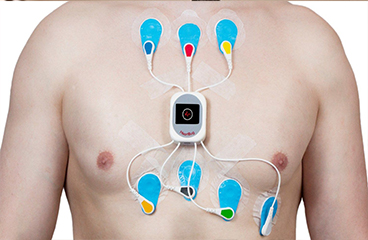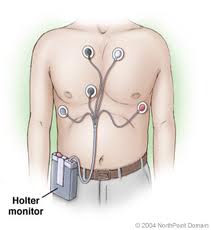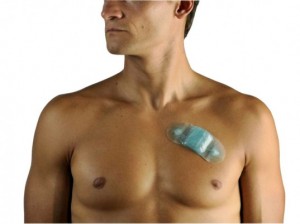Holter Monitoring



The Holter monitor is a type of portable electrocardiogram (ECG). It records the electrical activity of the heart continuously over 24 hours or longer while you are away from the doctor’s office. A standard or “resting” ECG is one of the simplest and fastest tests used to evaluate the heart. Electrodes (small, plastic patches that stick to the skin) are placed at certain points on the chest and abdomen. The electrodes are connected to an ECG machine by wires. Then, the electrical activity of the heart can be measured, recorded, and printed. No electricity is sent into the body. Natural electrical impulses coordinate contractions of the different parts of the heart. This keeps blood flowing the way it should.
Holter Monitor
24-hour Ambulatory ECG (Electrocardiographic) Monitoring (Holter) allows your physician to review your heart’s activity for 24 hours. Your physician may recommend this type of testing whenever you experience symptoms such as dizziness, palpitations, skipped beats or other sensations which may occur during normal day to day activities, but not necessarily while you’re in the physician’s office.
In addition to the monitor, patients will be given a diary to monitor their symptoms that the doctor can use to correlate with irregularities within the heart. Allow 30 minutes for hook-up in our office with explanation of its use. Patients need to return to the office approximately 24 hours later to have the device removed.
What happens after wearing a Holter monitor?
After the test period, return the monitor to the technician. He or she will process the record of your heart activity and prepare a report for your doctor. This will include the notes in your diary. You should get the results of the test in one or two weeks.
We also now have the latest technology, Zio Patch which is a very small self-adhesive recorder that is worn for two weeks recording all of your heart beats. It has a small button that can be pushed during symptoms to see if abnormal heart rhythms correlate with symptoms. While this might not be appropriate for all patients, it has become a helpful and important additional option to help evaluate our patients.
